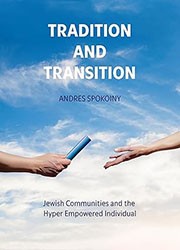Josh Gondelman’s Nice Try: Stories of Best Intentions and Mixed Results is a hilarious dive into the mind of a comedy writer. It’s filled with short anecdotes of Gondelman searching for meaning in every interaction and life event — from having sex for the first time, to adopting his first dog, to ditching duties as a counselor-in-training at a summer camp — each story is a window into what makes the author who he is. The book examines his fears (which range from being kicked by a horse to income inequality), the food he can cook (fish tacos and spaghetti), and most importantly, being nice. What being nice has meant to him specifically, and what it means in the context of the greater world — in a word? It’s complicated.
Gondelman was always the nice kid, trying too hard so people would like him. Being a nice person and being a good person are not the same thing, though; as the book evolves, the reader sees Gondelman undergo formative experiences that help him realize why he is the way he is, and how to use his kindness for good —and maybe sometimes for the tiniest bit of mayhem.
The book is breezy and fun to read, and Gondelman manages to cover a significant amount of his life taking the reader through childhood, adolescence, and his time as a pre-kindergarten teacher, clueless boyfriend, stand-up comic, and husband all with ease and a smile — along with a side of anxiety and a major helping of self-reflection. He tackles nemesis’ and fainting spells, the death of a loved one, examining the complex emotions of hating and loving a football team at the same time, and meeting his wife online in a way that is relatable, honest, and always self-deprecating.
Mainly, this book is about how to be a kind person. How to not just be nice, but to be good — to other people and to yourself. How to hold yourself accountable for your actions and learn from past behavior. It’s about growth, change, and realizing that just because a behavior was a good way to act in the past doesn’t mean it’s the correct way to act now. Gondelman dug through his memories and turned them upside down, showing the parts that were buried for years. He examines himself with the harsh light of wisdom that only time can give and says, I can do better.
Evie Saphire-Bernstein is the program director of Jewish Book Council. She graduated from the University of Illinois at Chicago with a B.A. in English and a minor in Jewish Studies. Before joining the Jewish Book Council team in 2015, she spent a year and a half working within the Conservative Movement as the Network Liaison for the Schechter Day School Network. She is a recent transplant to New York City, after living in Chicago for most of her life. In her spare time, Evie is a writer and blogger.





